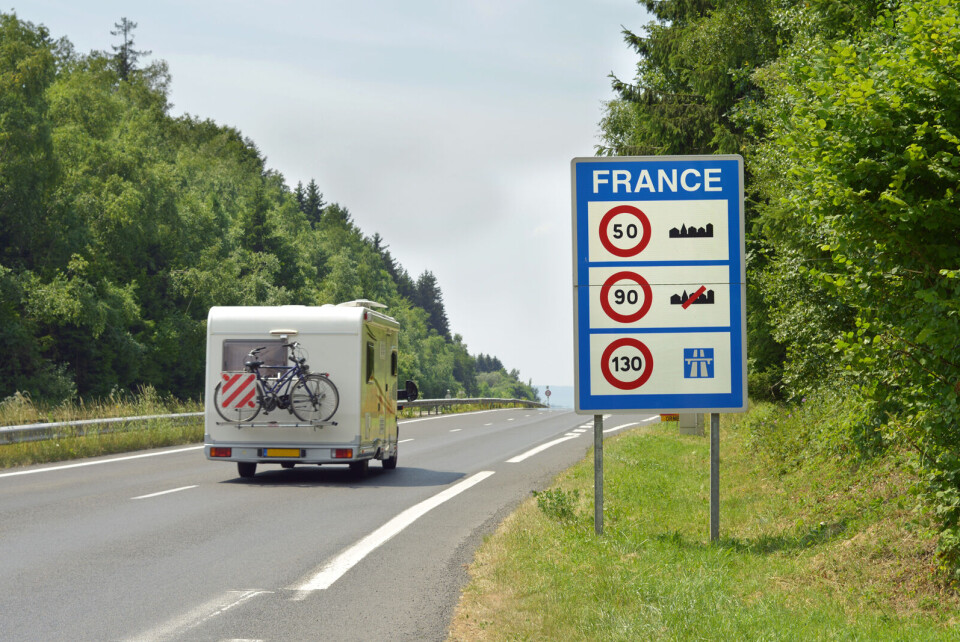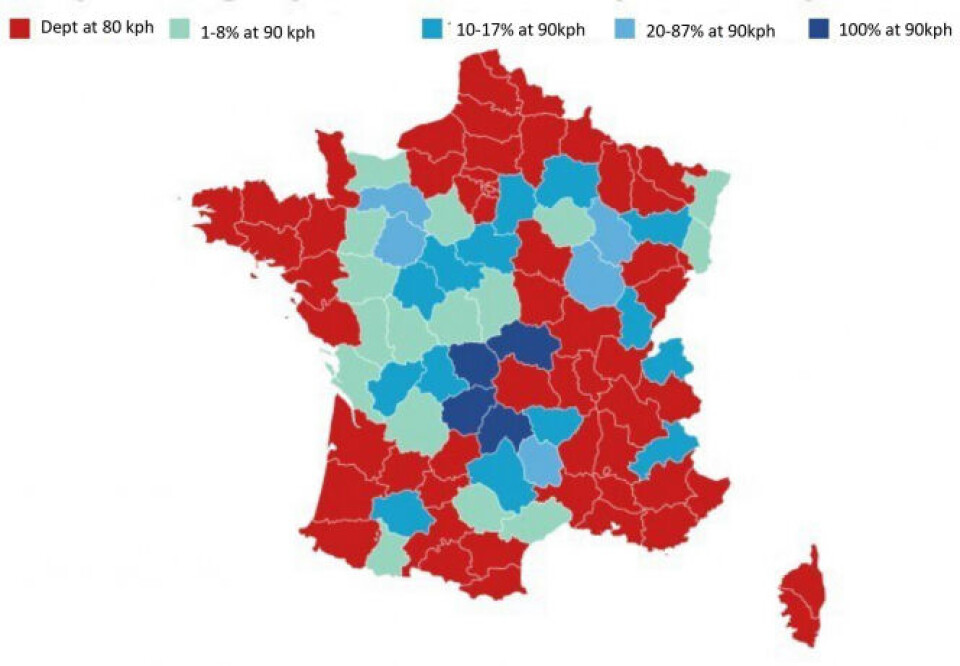-
La Voie Bleue: European Cycle Route of the Year is in France
700km bike path linking Luxembourg and Lyon has been crowned winner of the 2026 title
-
Before and after: Garonne river floods in south-west France
Satellite images show extent of flooding from back-to-back storms in February
-
Home insurance increases expected in France after floods
Compensation costs for the recent storms and flooding across the west and south-west is estimated to be in the billions of euros
37 French departments reinstate 90km/h limit
The French government imposed an 80km/h speed limit on all roads without central separation barriers in 2018

The number of departments that have seen the speed limit on departmental roads return to 90 km/h has risen to 37 and is likely to rise further, according to a leading motoring group.
Most departments which have returned roads to 90km/h are rural with low population densities, research from the Ligue de défense des conducteurs (LDC) shows.

Alexandra Legendre, of LDC, told The Connexion: “We know there are at least two more departments where they are seriously looking at raising speed limits to 90km/h.
“The 80km/h limit on departmental roads is something which serves no purpose other than to make travel slower.”
The government imposed an 80km/h speed limit on all roads without central separation barriers in 2018, and it was cited as one of the factors behind the gilets jaunes protests that shook the country that winter.
Departments were given permission to return to 90km/h under strict conditions in 2019. National roads without central barriers remain at 80km/h.
The French government said in July 2020 that having the 80km/h limit had saved 349 lives over 20 months
However, Ms Legendre said LDC analysis, using the same sources as the government, showed no difference between death rates during that period relating to speeding on roads with 80km/h or 90km/h limits.
“The government report looks at accident death rates from all causes, not just those related to speeding, and on all departmental roads where the limits ranged from 70km/h to 110km/h,” she said.
The Ligue says its analysis shows that other factors, such as drink-driving, driving under the influence of drugs, and poor road conditions, play an important role in death numbers, but the government is nevertheless putting most of its road safety measures into speed control.
A number of departments, including Charente, which have returned some of their roads to 90km/h have had their decisions to do so challenged in administrative courts by another driving association, the Ligue contre la violence routière. It says they did not follow proper procedures.
In its latest monthly communiqué, the Ligue points to a rise in the number of deaths on the road since a low point in February 2021.
Last October, 294 people died on French roads, an increase of 44% compared to October 2020, when the country was in lockdown.
In the 12-month period until the end of October 2021, 2,756 people died, a 2.1% increase on the 12 months before.
The Ligue contre la violence routière also warns that a campaign against the driving licence points system by farright presidential candidate Eric Zemmour is dangerous, saying the system has helped save 86,000 lives over 25 years.
Residents in Yonne, Burgundy, have recently been polled to gauge whether they are in favour of increasing speed limits in the department to 90km/h.
The consultation – online and by post – was prompted partly by figures suggesting that since the 80km/h limit was imposed in 2018, the number of fatal accidents has risen.
In its notice to residents, the Conseil générale said returning to 90km/h would necessitate the change of 500 speed limit signs at a cost of €100,000.
Individual signs are priced at around €80, and it costs departments approximately €120 to change one, using two workers with a small lorry.
Related stories
Has France’s driving licence points system saved lives?
All new cars in France to have automated speed monitors from July 2022
























